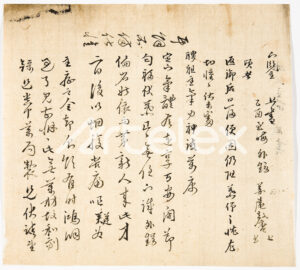Kang Won-hyung (姜遠馨), a renowned independence activist.
In 1905, following Japan’s forced signing of the Korea-Japan Protocol, Kang founded the Korean Thirteen Provinces Confucian Association to resist Japan’s encroachment. He sent official protests to the Japanese legation and demanded the release of fellow independence fighters who had been arrested by the Japanese military police. Despite his protests, Kang himself was imprisoned for 45 days.
Later that year, after the signing of the Eulsa Treaty, which formally deprived Korea of its sovereignty, Kang submitted a fervent appeal demanding the punishment of the “Five Eulsa Traitors” who had collaborated with Japan. He criticized the treaty as an illegal document that had been signed under coercion, calling for the execution of the traitors and international condemnation of Japan’s actions. His efforts resulted in his arrest by Japanese authorities in November 1905, where he was imprisoned for four months.
After Korea’s annexation by Japan in 1910, Kang, devastated by the loss of his nation’s sovereignty, met with comrades in Seoul to discuss ways to restore independence. However, as these efforts proved fruitless, he fell ill and, after four years of illness, passed away on September 25, 1914, in Gyeongseong-bu (modern-day Seoul). As he lay on his deathbed, he reassured his family but lamented that he could not live to see the restoration of his nation.
A memorial stone in his honor was erected in Sindong-ri, and in recognition of his contributions to the independence movement, Kang was posthumously awarded the Presidential Commendation in 1968 and the Order of Merit for National Foundation in 1980.

